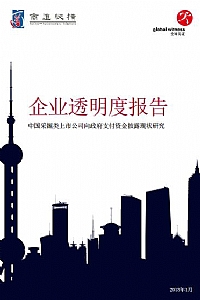
China's supply of natural resources is a key element in the drive to sustain economic growth and long-term energy security. However, many resource-rich countries that China does business with have fallen victim to the ‘resource curse’ – the paradox that countries and regions with an abundance of minerals and hydrocarbons tend to have less economic growth, more conflict and corruption, and worse development outcomes than countries with fewer natural resources. As a result, Chinese extractive companies face particular investment and security risks as they extract from resource curse affected countries and regions, making them vulnerable to corruption and instability.
China's supply of natural resources is a key element in the drive to sustain economic growth and long-term energy security. However, many resource-rich countries that China does business with have fallen victim to the ‘resource curse’ – the paradox that countries and regions with an abundance of minerals and hydrocarbons tend to have less economic growth, more conflict and corruption, and worse development outcomes than countries with fewer natural resources. As a result, Chinese extractive companies face particular investment and security risks as they extract from resource curse affected countries and regions, making them vulnerable to corruption and instability.
Transparency Matters: Disclosure of payments to governments by Chinese extractive companies presents a rigorous assessment of the tax payments made by Shanghai-listed extractive companies to governments in resource-rich countries in 2010 and 2011. It finds that while several companies positively stand out in the amount and quality of information they publish, much more could be done by the companies and regulators to enhance reporting beyond existing requirements.
This report contains two original pieces of research exploring the potential role of the Shanghai Stock Exchange (SSE) to improve extractive company disclosure and transparency measures.